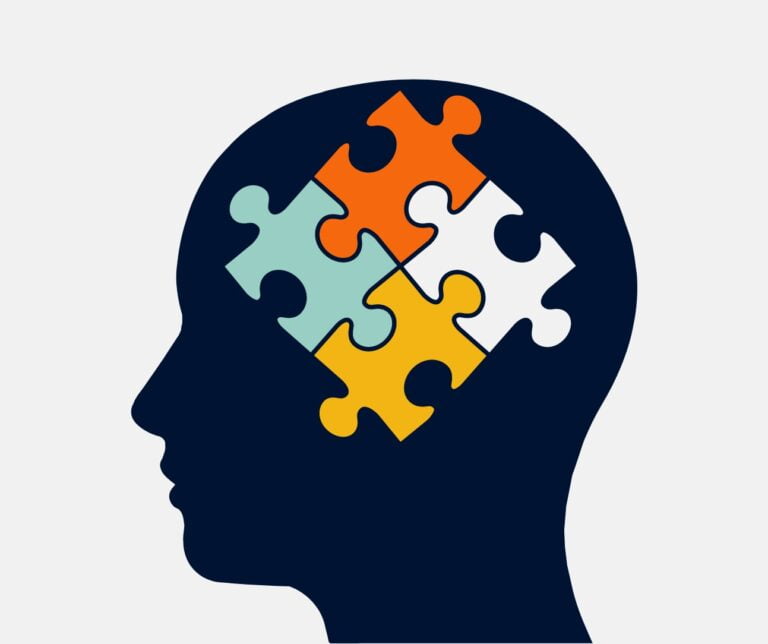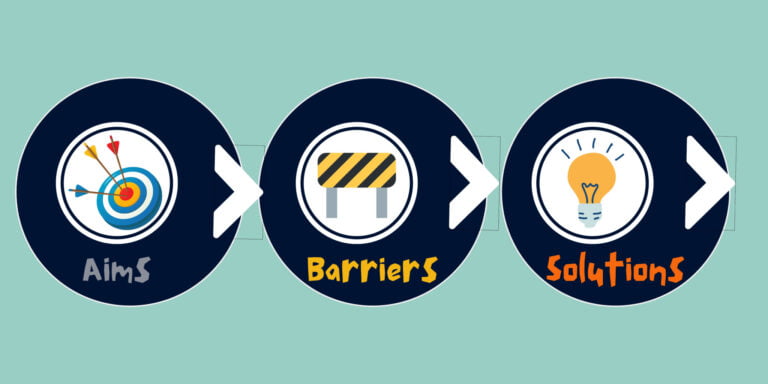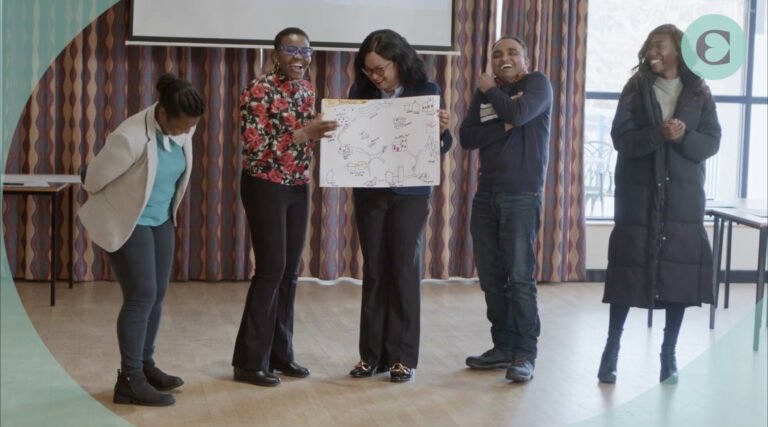My last blog was on the topic of productive conversations in challenging times and I want to continue on that theme today. Knowing what makes some conversations harder than others, is only the first step. The next step is practice! Getting better at difficult and uncomfortable conversations takes practice. Like any skill, the more you practice it, the easier it will become and the better you will be at it.
Drama-based training is a great way to help people improve their communication skills by trying out new techniques, in a realistic and safe environment. At Enact Solutions we really enjoy teaching people how to flex the way they communicate, based on the person and scenario in front of them. Our training is built on psychological models, scientific information and research, but what’s most special about it is the way we use drama.
We believe learning should be fun and interesting. Think about how children learn – through play and repetition in safe environments. The same goes for adults. Learning should never be boring. It should be stimulating and drama achieves this fantastically.
Consider for a moment why people go to the cinema, the theatre, or watch TV – because it’s entertaining! Drama is fun, educational, thought-provoking and emotive. It lifts us up, and drops us into despair. In short, drama creates moments that last in the memory; that leave you feeling like you have experienced something unique and special.
Here at Enact, we use the power of drama to spark conversations, evoke emotions and fuel positive change.
How do we do this? Well, we research the types of challenges organisations face, then write realistic characters and scenes to bring these struggles to life. Our talented actors perform these in a range of filmed and live action material. For example, in our Productive Conversations workshop, our actors bring to life the reality of remote working; a new challenge for many of us during the pandemic.
 We show the technical issues, the isolation, the interruptions from family / housemates – essentially all the stresses and strains that working from home, during a pandemic can bring. Delegates see the impact these factors have on conversations – characters getting distracted, frustrated and being short with each other. Combine this with a potentially difficult conversation, such as furlough or missed deadlines and it’s easy to see how quickly communication can break down – especially when it’s not handled well.
We show the technical issues, the isolation, the interruptions from family / housemates – essentially all the stresses and strains that working from home, during a pandemic can bring. Delegates see the impact these factors have on conversations – characters getting distracted, frustrated and being short with each other. Combine this with a potentially difficult conversation, such as furlough or missed deadlines and it’s easy to see how quickly communication can break down – especially when it’s not handled well.
When workshop attendees see themselves, their colleagues or their situations reflected in the drama, it evokes strong feelings. We’ve had delegates exclaim, “Oh I do that!” It’s these feelings, which are the perfect foundation for encouraging new ways of thinking and behaving – as explained in this brilliant short video: ‘Put Feelings First’ by Dan Heath, (co-author of ‘The Power of Moments’).
Once participants have been moved by the drama, we then use ‘stop-start’ forum theatre, to give our learners the opportunity to practice how they would handle the challenge differently. The actors replay the scene from the beginning, but this time the delegates are in control. Working with our expert facilitators, they can stop the drama when they feel there is an opportunity to change events for the better. Delegates can instruct a character to empathise with their colleague, ask an open question, or actively listen for example. They then get to watch how their changes impact the scene, for the better.
What’s the benefit of this? Well, as with any skill, practice is key! Similar to the way an athlete practices their moves to commit them to ‘muscle memory’, people must do the same for ’emotional memory’. By practising potentially challenging conversations (through ‘stop-start’ theatre), we give our learners the opportunity to develop their emotional memory, so they have the confidence and experience to handle them when they occur in real-life.
As well as emotional memory, we must also take the time to develop our listening skills, as active listening is key to holding good conversations. Julian Treasure is an incredible person to listen(!) to on the subject of listening. He’s given some great TED Talks on the topic, specifically how as a society, ‘we are losing our listening’, with how loud the world is becoming.
Through Enact’s drama, our learners recognise how distracting the everyday, undercurrent of working life sounds can be; the incessant email notifications, video and telephone calls, and interruptions from family. They see firsthand the negative impact this ‘noise’ has on good-quality, important conversations with their colleagues. We teach them how to listen more effectively, how to pay active attention to their colleagues. It’s about listening with your ears, head and heart. We all need to be heard at the end of the day…
…So let’s start listening.
Jemma Houghton
This is the second in a series of blog posts about Productive Conversations written by Jemma Houghton, one of our Associates at Enact Solutions. She works in a range of areas including research, writing, filming and workshop consultancy. You can read Jemma’s first blog on this topic, Let’s talk about work and the new normal, on our site. You can also check out all our products and have a look at our events page.



